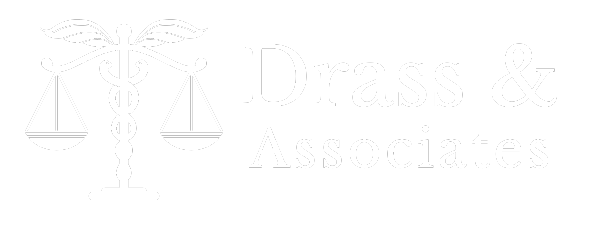In addition to #suicidality, two of the most potentially dangerous situations -physically and emotionally- for patients receiving behavioral medicine and addiction recovery services are: 1)unanticipated discharges from treatment, e.g. #AMA/ Administrative Discharges, and 2) the use of restraints.
“It is of paramount importance to effectively train staff on how to appropriately care for agitated and at-risk patients requiring restraint and/or seclusion. If staff is not appropriately trained, patients and others are placed at a higher risk of adverse outcomes. In addition to staff training, healthcare facilities must be equipped with means to protect individuals such as continuous security presence, efficient operation of the business, access control, alarm systems, availability of means to restrain and seclude. Restraint and seclusion must be thought of as last resort methods to use if de-escalation techniques are ineffective. The patient should be included as much as possible in the decision-making process. It is important for staff to review restraint and seclusion situations to evaluate performance and provide feedback to ensure efficient, effective, and safe medical practice.”
As I prepare to complete my recertification in de-escalation and safe restraint techniques, I revisited some of my past posts as well as reviewed this October 9, 2023 World Health Organization announcement, “WHO-OHCHR launch new guidance to improve laws addressing human rights abuses in mental health care:
Ending coercive practices in mental health – such as involuntary detention, forced treatment, seclusion and restraints – is essential in order to respect the right to make decisions about one’s own health care and treatment choices.
Moreover, a growing body of evidence sets out how coercive practices negatively impact physical and mental health, often compounding a person’s existing condition while alienating them from their support systems.
The guidance proposes legislative provisions to end coercion in mental health services and enshrine free and informed consent as the basis of all mental health-related interventions. It also provides guidance on how more complex and challenging cases can be handled in legislation and policies without recourse to coercive practices.
Partnering with patients and their families to facilitate thorough, patient-centered #assessments, then formulate proper diagnoses which contribute to comprehensive, strengths-based, individualized treatment plans to address complex, and often trauma-influenced emotional conditions, can often help mitigate these #unsafe #outcomes.
In its Hospital Interpretive Guidelines- Patients’ Rights, The Department of Health and Human Services Centers for Medicare and Medicaid Services (CMS) states, “Comprehensive assessment is critical in coming to an effective intervention decision of what would be the greater benefit to a patient. In the case of a patient with dementia who wanders and there is concern about the patient falling, part of the hospital’s assessment process should address these questions:
- Is there a way to enable the patient to ambulate safely?
- Is there some assistive device that will improve the patient’s ability to safely self ambulate?
- Is a medication or a reversible condition causing a problem with safely self ambulating?
- Would the patient be content to walk with a staff person for a while?
- Could he/she be brought closer to the nurse’s station where he/she could be supervised?
- Does he/she have a history of falling that indicates that for him/her, a fall is likely if he/she is allowed to walk about?
- Could the patient’s environment be altered to improve the patient’s ability to self ambulate and reduce the risk of falling/injury?”
In addition to stringent regulations, CMS offers much education and guidance to support safe practices. E.g., “Physical Restraints Critical Element Pathway.”
Lawsuits related to the use of restraints in the healthcare setting are typically based on allegations of negligence or false imprisonment. Negligence claims allege that the healthcare provider failed to provide the patient with a reasonable standard of care, resulting in injury or harm. False imprisonment claims allege that the healthcare provider unlawfully restrained the patient’s freedom of movement.
In order to succeed in a negligence claim, the plaintiff must prove the following elements:
- The healthcare provider owed the patient a duty of care.
- The healthcare provider breached that duty of care.
- The breach of duty caused the patient’s injury or harm.
- The patient suffered actual damages.
In order to succeed in a false imprisonment claim, the plaintiff must prove the following elements:
- The healthcare provider intentionally restrained the patient’s freedom of movement.
- The restraint was unlawful.
- The plaintiff suffered actual damages.
Restraints are typically used in the healthcare setting to prevent patients from harming themselves or others. However, the use of restraints can also be harmful, causing patients to experience physical and psychological distress, as well as injuries such as pressure sores and nerve damage.
42 CFR § 482.13(e) states:
All patients have the right to be free from physical or mental abuse, and corporal punishment. All patients have the right to be free from restraint or seclusion, of any form, imposed as a means of coercion, discipline, convenience, or retaliation by staff. Restraint or seclusion may only be imposed to ensure the immediate physical safety of the patient, a staff member, or others and must be discontinued at the earliest possible time.
The new WHO guidance also provides a checklist to be used by countries to assess and evaluate whether mental health-related legislation is compliant with international human rights obligations. In addition, the guidance also sets out the importance of consulting persons with lived experience and their representative organizations as a critical part of this process, as well as the importance of public education and awareness on rights-based issues.
Need help developing therapeutic #policies and protocols or analyzing and auditing medical records? Contact us: www.DrassAssociates.com.
Learn More Here:
Parkes D, Tadi P. Patient Restraint and Seclusion. [Updated 2022 Nov 14]. In: StatPearls [Internet]. Treasure Island (FL): StatPearls Publishing; 2023 Jan-. Available from: https://www.ncbi.nlm.nih.gov/books/NBK565873/
WHO-OHCHR launch new guidance to improve laws addressing human rights abuses in mental health care
